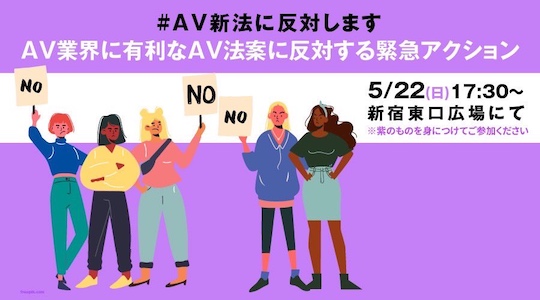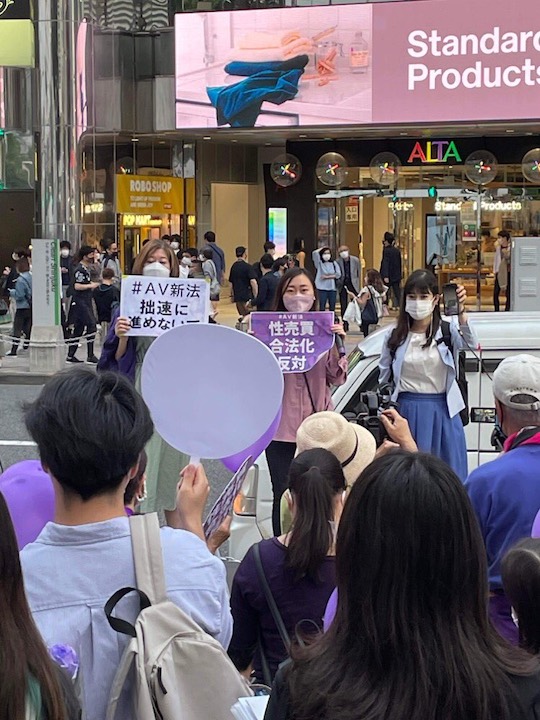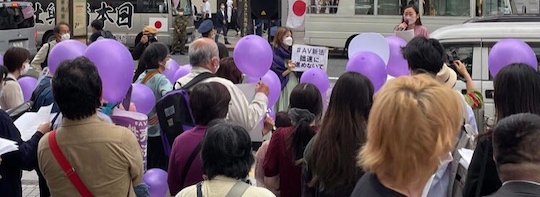Hundreds rally in Tokyo to protest new porn law
As widely covered on this blog, the lowering of the age of adulthood in Japan from 20 to 18 has sparked a scramble to create a new exemption for 18- and 19-year-olds in regard to contracts for adult video.
As was belatedly discovered, the new age of adulthood would make legal contracts fully binding, removing the previous safeguard that allowed teenagers to back out of contracts. After initially hoping to introduce a simple exemption mechanism, politicians have eventually moved forward with an entirely new, more ambitious new law aimed at adult video performers that enables all performers to release themselves from a contract up to a certain time period, and that necessitates more clarity from producers about what a production entails.
The proposed law has been received with caution by the industry, which perhaps worries about a shift in power but doesn’t want to be seen to be against performers’ rights after the coercion scandals that rocked JAV in the late 2010s.
It is evident that the lawmakers have the well-being of performers at heart, but not everyone is happy about the development.

On May 22, a rally was held in Shinjuku, central Tokyo, by feminists and others. The theme color of the protest was purple. Participants, who numbered 230 according to organizers (others put the number at more like 20), wore purple or carried purple balloons.
Supporters of the movement include the activist (and former gravure and nude model) Yumi Ishikawa, lawyers, actors, local government politicians, the writer Minori Kitahara, the student support group Colabo, and more.
They oppose the proposed law because it gives legal recognition to contracting sex and providing structures for supporting and perpetuating the AV industry.


Though not an especially large rally, it attracted a decent amount of media coverage.
Complicating matters somewhat, however, a group of sex workers also organized a counter-protest against the rally itself for how it was describing sex workers as victims who get manipulated or coerced into prostitution. This group was opposed to what it calls such discrimination, arguing that they are not victims and should be the ones leading the discussion about their status.
“As sex workers and feminists in solidarity with them, we resist state control and domination by patriarchal norms. We fight for the freedom of the individual body, including the freedom of choice of occupation, including sex work.”
From what we can tell, though, the counter-protest and main rally did not come to blows per se, but the sex workers’ group seemed to stand quietly and politely at the back of the rally with their alternative placards.















1 Comment
Ah women.
“A woman can do any job they like unless we disagree with it.”